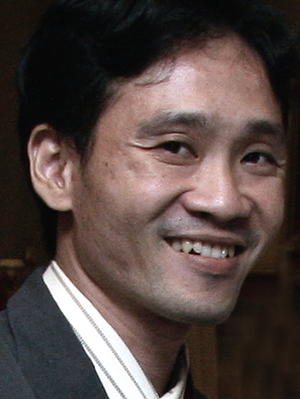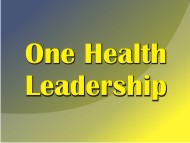Steps and Strategi of Veterinary NGO in Implementation of Veterinary Authority in Indonesia
 Definition of NGO
Definition of NGO
According to UN, NGO is a non profit non government organization, made voluntarily by the public, at local or international scale, and aims to improve public welfare. NGOs are made with certain objectives by a group of people with the same vision. NGOs conducts various social services and functions, addresses the public demands to the government, monitor implementation of government policies and programs, and encourages public participation in the policy making process of the country. NGO also provides analysis and consultation, and acts as an early warning system for the government and assists in monitoring implementation of international agreements in a country.
NGO as a Third Sector
Hadiwinata in his book “Politics of NGOs in Indonesia: Developing Democracy and Managing a Movement” in 2003 stated that NGOs has become a “Third Sector”, which is the public sector that focuses on social or personal concerns. The First Sector is the government sector which has the duty to ensure public services for their citizens and provide basic social needs, whereas the Second Sector is the private sector which consists of businessmen and industrial people whose objective is to make a living and create wealth. As the Third Sector, NGOs operate out of the government and the market. Quoting from Salamon and Anheier, Hadiwinata defined an NGO with the following characteristics: (1) Formal, which means organizationally permanent, has an office with a set of regulations and procedures; (2) Private, which means an organization outside or separate from the government; (3) Non profit, which means does not give profit to the director or directive board; (4) Self-governing, which means not controlled by other parties; (5) Voluntary, has a certain degree of volunteer; (6) Non religious, which means does not promote certain religions; and (7) Non politic, which means does not run for any political elections (page 5).
CIVAS as a veterinary NGO
CIVAS (Center for Indonesian Veterinary Analytical Studies) as a NGO in the veterinary medicine field was born out of the concern of a group of veterinarians with the same vision. It was also encourage by the will to participate and volunteer their skill and efforts for the development of animal health and food safety in Indonesia.
CIVAS with a vision to become a reliable, leading and independent organization with high commitments and concerns to accomplish the health and welfare of human being through the improvement of animal health, animal welfare and food safety of animal origin has positioned itself as a public interest advocacy. It means CIVAS has the obligation to safeguard and fight for the public interest through animal health and safety of animal origin products. In relations with the commitment to participate in guaranteeing animal health, animal welfare and food safety of animal origin, CIVAS has performed numerous scientific studies concerning that matter. It is here that CIVAS as an analytical studies body will greatly participate. To conduct these studies, CIVAS requires professional and competent veterinarians with certain specifications/expertise.
Until this very moment, public awareness and concern about animal health and food safety, either from urban until rural areas, are still very lacking. Besides that, the capacity of human resources, facilities, and government budget is still very limited; therefore participation of public community with commitment and concern to help improve public awareness is much needed.
Based on the problems above, it is then transformed by CIVAS into their mission which are:
- To provide alternative data and information database in livestock, animal health, animal welfare and food safety of animal origin
- To enhance community awareness and participation on safety and inspection of food of animal origin (food watch/care)
- To develop better understanding in animal welfare issues in Indonesia
- To support and assist in the development and implementation of national animal health system
- To imprve the role and capacity of the community to support the early warning system in animal health and veterinary public health
- To empower the livestock community through the use and development of local based resources.
- To advocate the process of pro-public decision making policy in livestock and animal health sector
CIVAS and Veterinary Authority
CIVAS is a public interest advocacy body which means that CIVAS exists to advocate the public interest, therefore in its acitivties must reflect animal health issues which are related with public good/public interest. And also because of CIVAS’ vision and mission which are closely related with animal health, CIVAS requires people who are professional in their field of interest.
In relations with the veterinary authority issue which is now initiated by veterinarians, either from the government or associations, CIVAS’s duty now is to ensure that the veterinary authority developed is really for the public interest, not just for certain group’s interest. It means that if the veterinary authority is in accordance with the public interest than CIVAS will definitely support it.
Poor public acknowledgment of the veterinary profession in Indonesia is induced because veterinarians only work in issues which are not related to public interest (micro issue). It means that until now the public still does not consider animal health as their concern. Because of that, if we want to strengthen acknowledgement of the veterinary profession in Indonesia then all of the veterinary community must participate in improving public awareness by making them realize that animal health, particularly zoonotic disease and food safety, is very closely related to the public good. As long as the public still does not realize the importance of animal health in their lives and as long as veterinarians are still wedged in each of their personal businesses then for that long too will the veterinary profession not be acknowledged by the public and also by the country. In other words, if the veterinary authority is considered as the country’s acknowledgement of the veterinary profession then it can all be realized if we have succeeded in educating the public on the importance of animal health.
Bogor, March 2006
Executive Director of CIVAS

